[Breaking news alert 2:05 p.m.]
President Barack Obama said that the United States "should take military action against Syrian targets" in a Rose Garden address Saturday. However, he said he would seek congressional authorization when federal lawmakers return from recess.
The president appealed for congressional leaders to consider their responsibilities and values in debating U.S. military action in Syria over its alleged chemical weapons use."Some things are more important than partisan differences or the politics of the moment," he said. "Today I'm asking Congress to send a message to the world that we are united as one nation."
[Previously published story 1:05 p.m.]
Syrian samples to be tested for chemical weapons as Obama weighs military action
(CNN) -- U.S. President Barack Obama will update Americans Saturday on his thoughts about how to proceed on the question of Syria, as U.N. inspectors return from Syria carrying evidence about whether an attack last week in a Damascus suburb included the use of chemical weapons.
"The aim of the game here, the mandate, is very clear -- and that is to ascertain whether chemical weapons were used and not by whom," U.N. spokesman Martin Nesirky told reporters Saturday.
The team arrived in the Netherlands earlier in the day with information about the August 21 attack, which British and U.S. intelligence reports say included chemical weapons.
"It needs time to be able to analyze the information and the samples," Nesirky said.
He noted that Secretary-General Ban Ki-moon has said there is no alternative to a political solution to the crisis in Syria. "A military solution is not an option," he said.
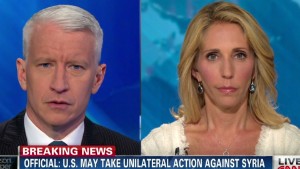
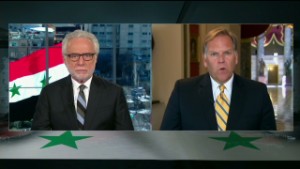
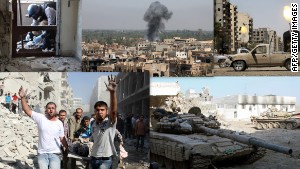
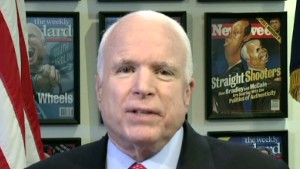
Obama has proposed a limited military action to dissuade Syrian President Bashar al-Assad from using chemical weapons against his people, as the administration contends has occurred multiple times.
But more consultations are needed with Congress and allies before any "response" is taken, a senior U.S. official told CNN Saturday. It was not clear what implications this might have for the timing of any possible U.S. strike on Syria.
The president was scheduled to make a statement at 1:15 p.m. from the White House Rose Garden, White House Press Secretary Jay Carney said in a tweet.
The inspectors will share their findings with Ban, who has said he wants to wait until the final report is completed before presenting it to the U.N. Security Council -- which could take a week.
Ban met Saturday with Angela Kane, the world body's high representative for disarmament affairs, for more than an hour, Nesirky said.
Syria's prime minister appeared unfazed by the saber-rattling. "The Syrian Army's status is on maximum readiness and fingers are on the trigger to confront all challenges," Wael Nader al-Halqi said Saturday during a meeting with a delegation of Syrian expatriates from Italy, according to a banner on Syria State TV.
But planning for a possible military response is well under way in Washington. Defense Secretary Chuck Hagel, Vice President Joe Biden and Chairman of the Joint Chiefs of Staff Martin E. Dempsey arrived Saturday morning at the White House.
Obama said he's determined to hold Syria accountable for what U.S. intelligence experts have concluded were chemical weapons attacks against Syrian civilians.
The Syrian government has denied the charge, saying that jihadists fighting with the rebels carried out a chemical weapons attack on August 21 in an effort to turn global sentiments against it.
British intelligence had put the number of people killed in the attack at more than 350.
U.S. Secretary of State John Kerry on Friday cited a death toll of 1,429, more than 400 of them children. No explanation was offered for the discrepancy.
"There is no question that Assad regime used CW indiscriminately against Syrian people on Aug 21," National Security Adviser Susan Rice tweeted Saturday. "Question now is how to hold Syrian govt accountable, keep Assad from using CW again."
Syrian Foreign Minister Walid Moallem said the rockets carrying chemical payloads landed in areas held by Syria's own troops. Why would his government gas its own soldiers? he asked.
Not true, Kerry said Friday.
"We know rockets came only from regime-controlled areas and went only to opposition-controlled or contested neighborhoods," he said.
He cited a U.S. intelligence report in alleging that the attacks were well planned.
"We know that for three days before the attack, the Syrian regime's chemical weapons personnel were on the ground in the area, making preparations," Kerry said. "And we know that the Syrian regime elements were told to prepare for the attack by putting on gas masks and taking precautions associated with chemical weapons."
The assertion that the Syrian government used chemical weapons "is utter nonsense," Russian President Vladimir Putin told reporters in the far eastern city of Vladivostok on Saturday, state media reported.
Then, in remarks directed at Obama as a winner of the Nobel Peace Prize, Putin said, "Think about future victims in Syria."
He told the Russian state news agency Ria Novosti that he had seen no proof that al-Assad's government was behind any chemical weapons attacks.
"If they say that the governmental forces used weapons of mass destruction... and that they have proof of it, let them present it to the U.N. inspectors and the Security Council," Putin said.
"Claims that the proof exists, but is classified and cannot be presented to anybody are below criticism. This is plain disrespect for their partners," Putin said.
Putin said he was hoping to take up the matter with Obama during the upcoming G20 summit in Russia's Saint Petersburg on September 5-6.
Resistance
A year ago, Obama said that such an attack by the Syrian regime would cross a "red line," which he would not tolerate, but as he mulls military options, he is facing resistance even from those close to him.
Russia, which has a permanent seat on the U.N. Security Council, has said it would block any measure that includes military force against its ally, Syria.
Obama accused the council of being unable to "move in the face of a clear violation of international norms."
Kerry blamed this on "the guaranteed Russian obstructionism."
Britain's Parliament has voted against joining any coalition.
But Kerry brushed off the vote, saying that the United States "makes our own decisions on our own time lines, based on our values and our interests."
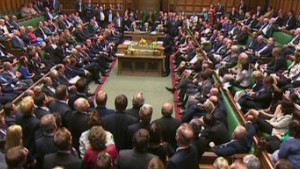
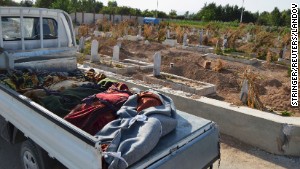
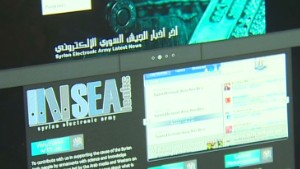
In Washington, some likened the claims that Syria had used chemical weapons on its own people to the claims -- made in the 2003 run-up to the U.S.-led war in Iraq -- that Baghdad had amassed weapons of mass destruction. They were never found.
Members of both parties in Congress have questioned the reliability of the U.S. intelligence.
More than 160 legislators, including 63 of Obama's fellow Democrats, signed letters calling for either a vote or at least a "full debate" before any U.S. action.
After meeting Friday with administration officials, Sen. Carl Levin, D-Michigan, said he had warned against "a kinetic strike" before the completion of the U.N. report and without the support of "a large number of nations, including Arab nations."
Levin, the chairman of the Senate Armed Services Committee, said he urged the administration to get lethal aid "to vetted elements of the Syrian opposition."
Senior administration officials are to discuss the August 21 attack in unclassified conference calls with the Senate Republican Conference and the Senate Democratic Caucus on Saturday afternoon, a White House official told CNN's Jill Dougherty.
Iraq
Kerry has insisted that the Syrian situation differs from Iraq.
In this instance, he said, the intelligence community has "reviewed and re-reviewed" its information "more than mindful of the Iraq experience." He added: "We will not repeat that moment."
The president said he was not considering any option that would include "boots on the ground" or a long-term campaign.
He previously ruled out setting up a no-fly zone.
Obama bemoaned international and domestic apprehensions. "A lot of people think something should be done, but nobody seems willing to do it."
"It's important for us to recognize that, when over 1,000 people are killed, including hundreds of innocent children, through the use of a weapon that 98 or 99% of humanity says should not be used even in war, and there is no action, then we're sending a signal that that international norm doesn't mean much," Obama said. "And that is a danger to our national security."
Strike
The president told reporters he had yet to make a final decision, but hinted at a military strike that sources and experts say would entail cruise missiles fired from U.S. Navy ships at Syrian command targets -- but not at any chemical weapons stockpiles.
Striking them could unleash poison gas that might kill more innocent civilians.
Obama said he was looking at a "limited, narrow act" to ensure that Syria and others know the United States and its allies won't tolerate future violations.
But retired Maj. Gen. James Marks told CNN that the idea of a limited engagement could be an illusion: responses from Syria or others in the region could lead to extended entanglement.
Peace
Former U.N. Chief Weapons Inspector Hans Blix, who failed to find weapons of mass destruction in Iraq before the U.S.-led invasion there, has called for the Security Council to condemn any use of chemical weapons anywhere in the world.
"It is a different thing to have a condemnation on behalf of the whole world by the world's highest council, the Security Council, rather than having it simply come out of Washington," he said.
The Russians could even take the initiative on the resolution, he said.
"I think it's a secondary matter to point out who used it. Accountability can come later."
After the blanket condemnation, all parties supporting each side in the conflict should push them to a cease-fire, Blix said.
Military intervention would nix that possibility.
"Now we will have quarrels, if the U.S. goes ahead, rather than a united Security Council."
The Syrian government and the rebels may both have used the weapons, Blix said.
Allies
If the administration does attack, it may not have to do it alone.
Kerry cited support from the Arab League, Turkey and France.
French President Francois Hollande told Le Monde newspaper that intervention should be limited and not be directed toward overthrowing President Bashar al-Assad, a position shared by Obama.
But Turkey disagreed.
"The intervention shouldn't be a one- to two-day hit-and-run," Turkish Prime Minister Recep Tayyip Erdogan said late Friday. "It should bring the regime to the brink of giving up."
While the British vote was a blow to Obama's hopes of getting strong support from key NATO allies and some Arab League states, regional NATO ally Turkey on Friday backed the U.S. contention that al-Assad's regime was responsible for using chemical weapons.
"The information at hand indicates that the opposition does not have these types of sophisticated weapons," said Foreign Minister Ahmet Davutoglu. "From our perspective, there is no doubt that the regime is responsible."
Australia also weighed in, with Prime Minister Kevin Rudd saying the evidence against al-Assad was overwhelming and, "therefore, the focus now legitimately lies on the most appropriate form of international response."

Aucun commentaire:
Publier un commentaire